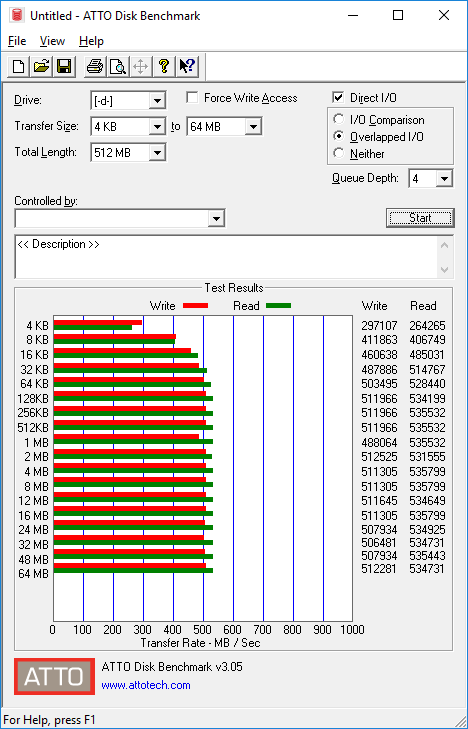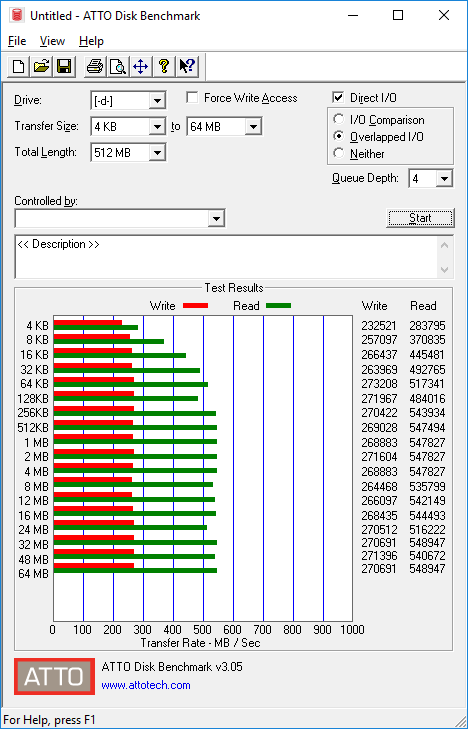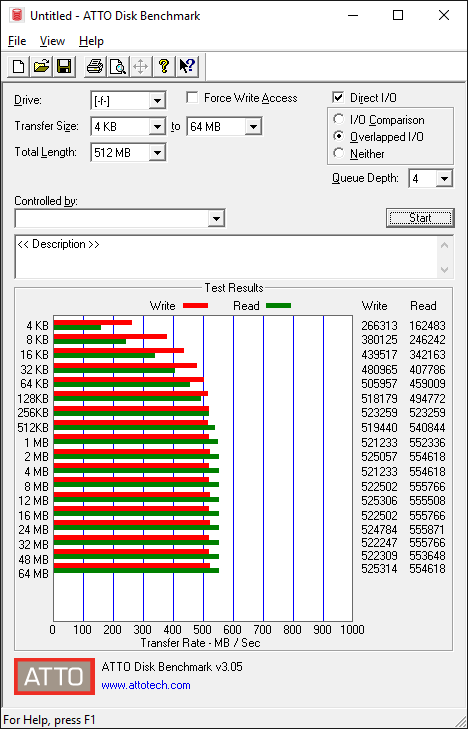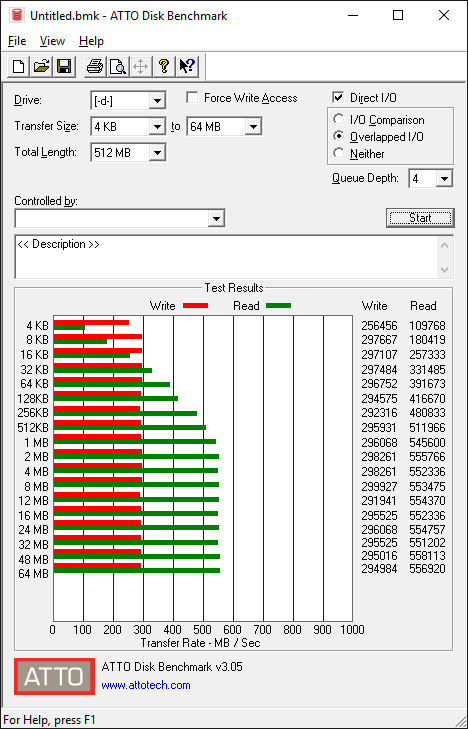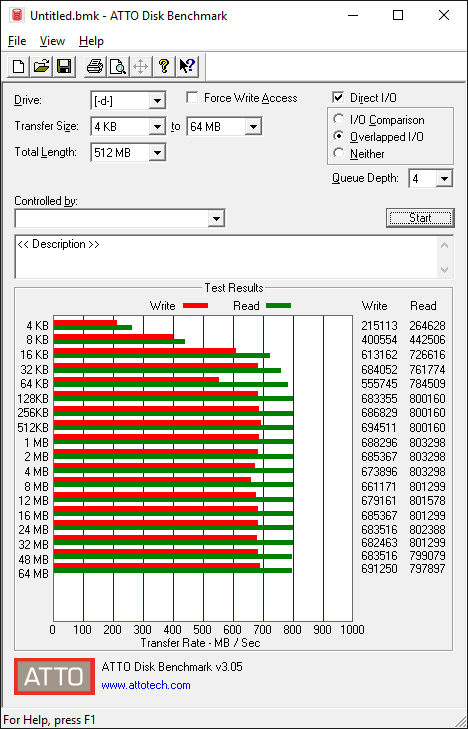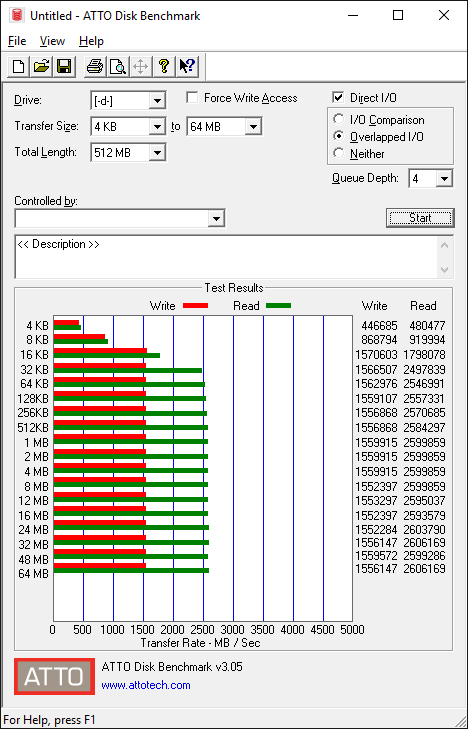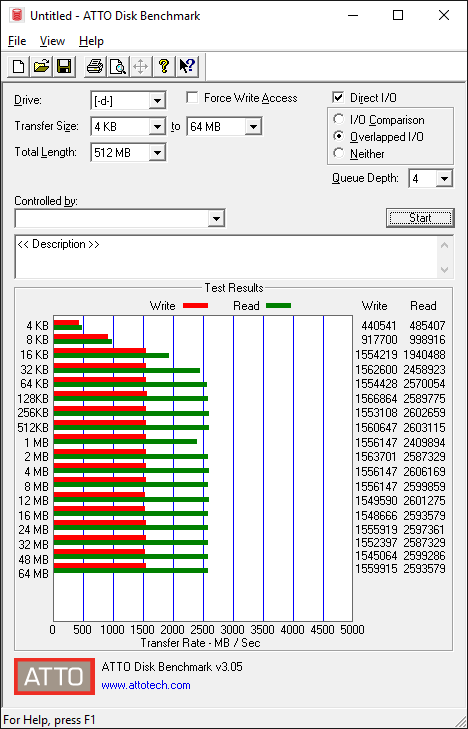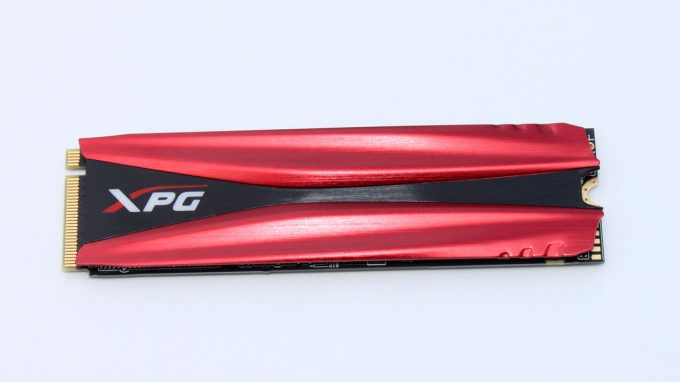- Qualcomm Launches Snapdragon 4 Gen 2 Mobile Platform
- AMD Launches Ryzen PRO 7000 Series Mobile & Desktop Platform
- Intel Launches Sleek Single-Slot Arc Pro A60 Workstation Graphics Card
- NVIDIA Announces Latest Ada Lovelace Additions: GeForce RTX 4060 Ti & RTX 4060
- Maxon Redshift With AMD Radeon GPU Rendering Support Now Available
ADATA GAMMIX S10 512GB SSD Review: Affordable M.2 NVMe Performance

Budget SSDs are not hard to find, but the price shouldn’t be the sole deciding factor. SATA SSDs might have been relegated to the bargain basement, but ultra-cheap “SATA Only” M.2 drives remain a hidden minefield that litters the budget M.2 marketplace. ADATA’s XPG S10 GAMMIX comes to the rescue, offering high-end NVMe performance at a budget price.
Page 3 – ATTO, Robocopy, dBpoweramp & Final Thoughts
ATTO
Our ATTO results clearly define the performance characteristics of the GAMMIX S10. Write performance very quickly maxes out around 830MB/s in line with the official performance specifications, though read performance continues scaling nearly up to 1,800MB/s as the file I/O size grows, reaching the drive’s max performance around half-a-megabyte I/O size.
This program emphasizes better than most the hidden performance limitations that used to be common in the earliest generations of solid-state drives, as the m4 results differ drastically with the drive capped around 280MB/s writes regardless of access size.
RAMDrive Robocopy
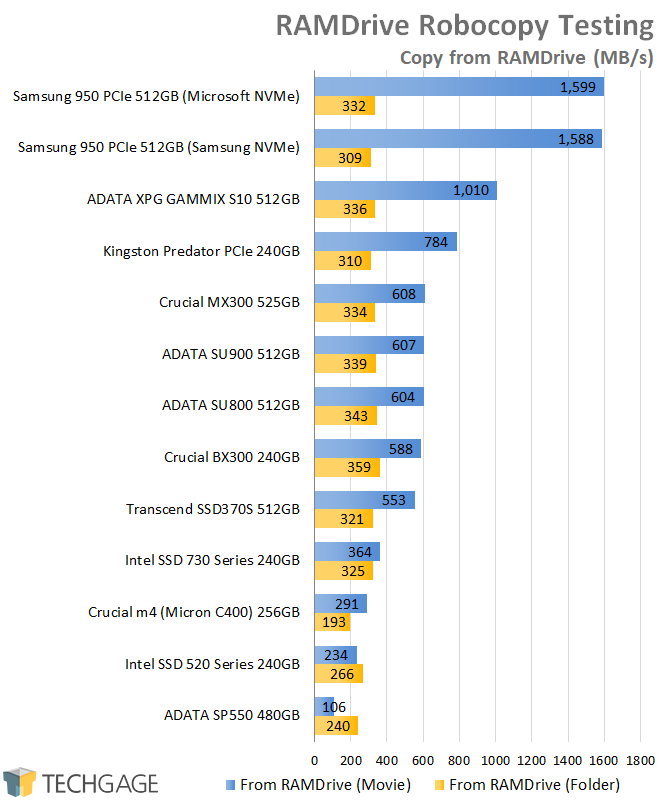
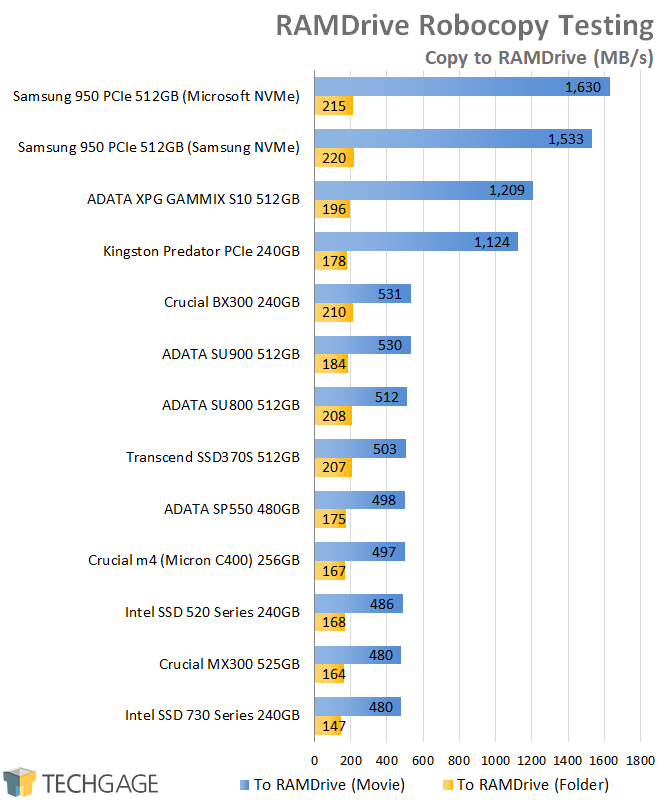
Robocopy is one of the few real-world usage scenarios that can highlight differences between SSDs. The movie file is nearly 10GB which exceeds the 8GB fast write-cache of some drives, though the GAMMIX S10 clearly isn’t able to still deliver strong performance in the write portion of these tests. It does well with the large folder full of many files, but begins to pull away when writing the movie file. For the read tests the folder test is mixed while the movie file read test once again delivers strong performance. As SSDs (and drives in general) primarily perform read operations the continued strong read performance is good to see.
dBpoweramp
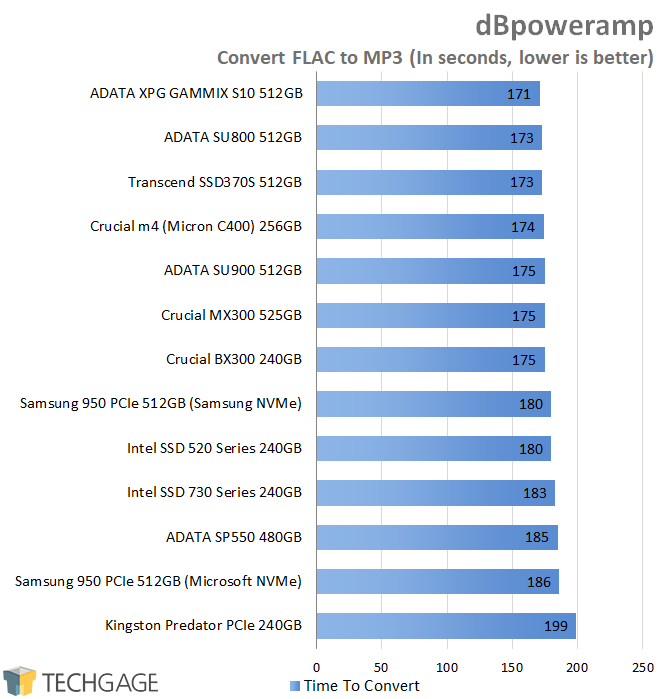
In an effort to find more real-world tests, we attempted lossless transcoding from FLAC to .M4A with the Apple Lossless Audio Codec (ALAC). Unfortunately, this test remains CPU bound with a Haswell quad-core processor, which goes to show why transcoding and encoding is still relegated to a serious many-core platform. Even so, the S10 manages to show us up by completing the encode job a whole two seconds quicker with repeatable results.
Final Thoughts
It is obvious solid-state drives are fast, but that is not all to consider. Older style 2.5” SATA SSDs (and a few “SATA-only” M.2 drives) suffer from an interface bottleneck of around 550MB/s. Non-SATA M.2 drives simply don’t have this limitation, and especially any M.2 drives that support the NVMe protocol as this automatically precludes them from being one of the cheapest model “SATA-only” M.2 drives. Thanks to the never-ending march of technology these NVMe M.2 drives have never been as cheap as they are today and they are already displacing high-end model SATA solid-state drives.
ADATA is aggressively positioning its army of solid-state drive models in the market, which leads to some unusual cross-competition between its own models. For example the GAMMIX S10 512GB is currently priced at $138, but the newer and better performing SX8200 model is priced lower at $132. In that scenario we would be remiss to not suggest saving money by choosing the better SX8200 drive, because during the course of this review the 512GB GAMMIX S10 has repeatedly been marketed at $120. At the time of this writing anything at 23 cents per gigabyte or less is a good value, especially at the performance levels the GAMMIX S10 or newer drives like the SX8200 can deliver.
Not only does this make it a much better value in the overall model scheme, but at 23 cents per GB the drive is priced very close to the upper-range 2.5” SATA SSDs that currently sit around the $100 mark. Twenty bucks to remove the SATA interface bottleneck and gain three times the read performance with NVMe functionality is a tempting offer that will appeal to many SSD buyers. It shouldn’t have to be said that prices are always in flux so be sure to check current pricing. To keep it interesting the SX7000 happens to be the same exact drive as the S10 – just sans the fancy heat-spreader, so it may possibly be found at a lower price.
The GAMMIX S10 is a budget-performance drive and it utilizes a fast-write SLC cache that is best suited for consumer workloads and is not intended for sustained continuous writing. If that SLC cache should be exceeded in one burst, the user will watch performance drop to the levels of what the bare TLC NAND can sustain. Still, for typical consumer use this scenario is unlikely to ever occur, short of downloading say a 25GB game from Steam to the drive. Fast-write caching is to be expected for entry and mid-range M.2 SSDs as it provides high-end performance as the S10 GAMMIX so easily demonstrates. If anything the fast-write caching on the S10 is impressive, allowing it to blow away the fast-write caching SATA SSDs and even top the Samsung 950 PRO M.2 drive in our testing. Not only does the S10 GAMMIX ace the rigorous ten minute sustained Iometer testing, but even the 10GB movie file that has often exceeded the fast-write caching limits of previously tested drives did not faze the S10 GAMMIX.
If one needs to measure hardware pedigree beneath that shiny heat-spreader, it is worth highlighting that the GAMMIX S10 shares the same controller+NAND combination found on the more expensive Intel 600p M.2 drives. Even better, ADATA doesn’t sacrifice the DRAM cache nor the full five-year warranty with the GAMMIX S10 to achieve its markedly lower price point. With nearly three times the read performance and almost twice the write performance of the SATA-based solid-state drives in our tests, the S10 GAMMIX is a very strong performance option without breaking the budget. But when priced at 23 cents per GB, the S10 GAMMIX becomes a downright steal and an easy drive to recommend over anything else in the market. If these prices and current trends continue it may be only a few more years before the SATA interface is once more relegated to the sole dominion of spinning platter hard drives.
Support our efforts! With ad revenue at an all-time low for written websites, we're relying more than ever on reader support to help us continue putting so much effort into this type of content. You can support us by becoming a Patron, or by using our Amazon shopping affiliate links listed through our articles. Thanks for your support!














